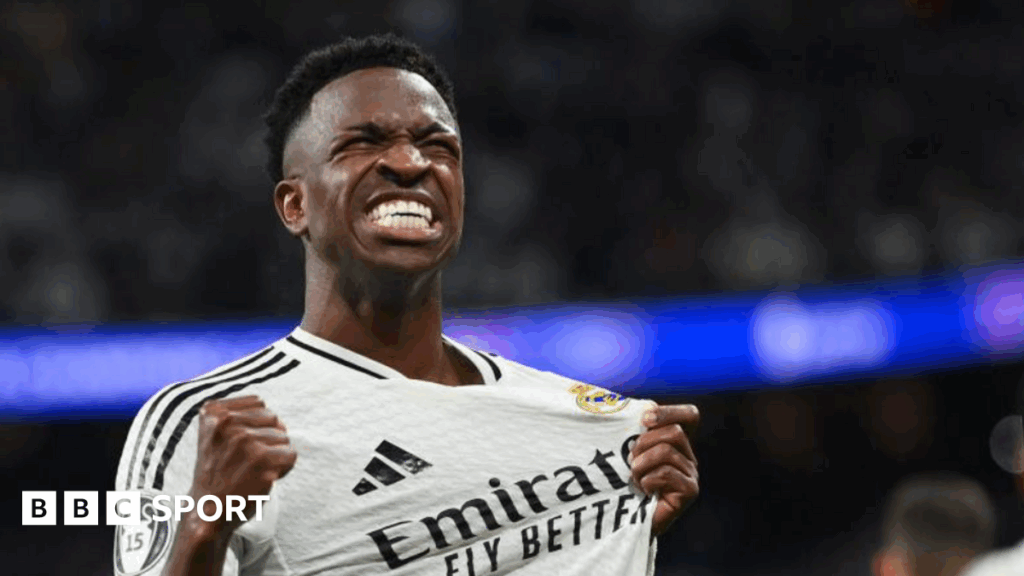The hostility towards Vinicius is real – and it has names, dates, and court sentences.
He has been insulted in stadiums across Spain. He has testified in trials after a black mannequin wearing his shirt was hung from a bridge.
He has seen fans being sanctioned with suspended sentences for racist abuse in Valencia and Mallorca, largely thanks to LaLiga’s efforts to ensure those actions do not remain unpunished within a judicial culture that long treated football’s “industrial” language and “banter” with indulgence.
And yet, each time he reacts – pointing to the stands, asking referees to act, refusing to pretend it didn’t happen – the same voices reappear: “Yes, they insult him, but he should behave better.”
It’s as if his protest and his provocation didn’t come from the same place. His gestures, his anger, his resistance all emerge from living in a context that demands he smile while being insulted.
To be a black footballer is to play under constant scrutiny in Spain. Every movement becomes evidence in a cultural trial. Every expression is judged through a gaze that demands docility.
Spanish football insists it isn’t racist, and maybe that’s part of the problem. The bias isn’t shouted; it’s whispered through commentary, coded in tone.
That’s Vinicius’ existence: being himself while constantly measured by someone else’s comfort.
This fight happens every weekend, in stadiums and studios alike. His dance is joy, but also defiance. His anger is not petulance – it’s protection.
Spain’s moral code still confuses composure with virtue. It rewards the player who remains calm, who never challenges the crowd, who fits the image of the polite star. But that code was built in a football world that no longer exists.
Today’s players are not silent idols. They are global citizens, performers, brands, and sometimes activists. Visibility is a tool. Vinicius understands that his presence and his defiance carry meaning.
Yet, instead of recognising that courage, much of the public reads it as provocation. He isn’t misunderstood because he behaves badly; he’s misunderstood because his existence unsettles old certainties about who gets to define respect.
He also represents something else – the transformation of the footballer into a public narrative. The modern player doesn’t just play; he builds identity through social media, sponsorships, personal branding.
Lamine Yamal’s birthday celebration – luxury, lights, spectacle – is a sign of that new world. His display can be read as authenticity, an embrace of modern fame.
Vinicius, however, is treated differently. He is loud, but his noise has purpose.
He stands at the crossroads of football, race, and modern celebrity – a figure both sociological and sporting.
He’s not just a winger; he’s a symbol of a new generation of athletes who refuse to shrink themselves to fit into someone else’s comfort.
Vinicius Junior doesn’t need to change for Spain to understand him. Spain needs to change to understand itself.
